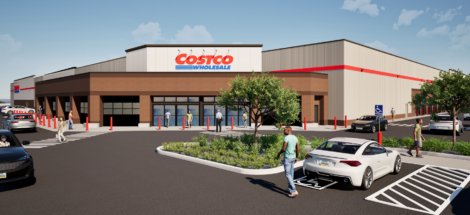
Lawrence’s largest natural gas utility files request to raise rates by about $11 per month for most customers

photo by: Jackson Barton
A Black Hills Energy crew is pictured near 1700 W. Sixth St. in this June 28, 2019 file photo.
UPDATED 1:40 P.M. FEB. 4
The largest natural gas provider in Lawrence is seeking a rate increase that likely would add an extra $11 per month onto the bills of most residential customers.
Black Hills Energy is seeking approval from the Kansas Corporation Commission for the higher rates, which would begin in the second half of 2025.
The KCC is the state’s regulator of public utilities, and any rate changes must face a hearing before that board, where the utility must justify the proposed rate increase. In a press release on Tuesday, Black Hills Energy said inflation is the primary reason behind the requested rate increase. The utility hasn’t increased rates in its Kansas territory since January 2022, and the company noted that inflation didn’t hit its highpoint until June of 2022, when it peaked at about 9%.
“The cost to operate and maintain the natural gas system has increased in every category,” Black Hills Energy said in a press release. “This includes pipeline construction costs, materials costs, vehicle expense, tools and internal and contract labor.”
The company says it has invested $118 million in its Kansas system for a variety of safety and reliability projects since late 2021.
In its filing with the KCC, Black Hills argues that the current rates no longer provide the publicly-traded company with an adequate profit margin. That’s a common reason for a rate increase, and the projected profit margin of a utility is often a key consideration for the KCC. Black Hills, according to the filings, is estimating that the rate increase would add about $17 million of new revenue to the company’s Kansas operations each year. It projects that its overall rate of return in Kansas would grow to 7.63%, up from 3.19%.
In the filing, Black Hills argued it “must earn a reasonable return on its property dedicated to public service in order to acquire necessary capital at reasonable rates, carry out necessary new construction, provide adequate supplies of gas, and continue to render the quality of service the public requires.”
Black Hills estimates that the rate increase would cause the average residential gas user to see an $11 increase in the portion of their monthly bill that is devoted to the delivery of gas. However, it is difficult to estimate how much a customer’s total bill would change during any given month. That is because the rate charged by Black Hills Energy is only for the delivery of the gas. The price of the actual gas is a separate rate that is not impacted by this rate increase request.
Rather, the price customers are charged for the natural gas itself is adjusted every month. The price is based on national natural gas prices, which can fluctuate broadly. Thus, if the price of natural gas is more expensive in 2025 than it was in 2024, the average customer likely will see an even larger increase in their total bill — unless they are able to figure out how to use less gas in their homes. Alternatively, if the price of natural gas is less in 2025 than 2024, customers likely will see their total bill increase by an amount less than the $11 per month average. Black Hills simply passes along the cost of the natural gas. It is not allowed to mark up the price.
In terms of what natural gas prices may do over the next year, the federal government is forecasting they’ll rise — and perhaps by a lot. The U.S. Energy Information Administration in January released its latest forecast, which calls for the wholesale price of natural gas to increase by about 40% from a year ago.
Demand is generally outpacing supply when it comes to natural gas, especially as larger amounts of natural gas are converted to liquified natural gas that can be shipped overseas to countries that may be facing shortages from the Ukraine/Russia war or other events. To complicate matters, about 9% of the natural gas consumed in the U.S. came from Canada in 2024, according to the U.S. Energy Information Administration. A much-discussed trade war between the U.S. and Canada likely would result in tariffs being placed on that Canadian natural gas, potentially leading to greater price increases.
However, the projected U.S. price increase comes on the heels of historically low natural gas prices in 2024 and 2023, the Energy Information Administration said in a recent report.

Of course, projecting what future gas prices will be is very much like predicting the weather. Big changes in the weather often produce big swings in the price of natural gas.
The price of gas itself, though, won’t have much to do with whether the KCC decides to allow a Black Hills rate increase. Rather, that decision will be based on Black Hills’ costs to deliver gas and make other needed improvements to gas infrastructure in its Kansas territory. That review process is just now getting started, and likely will take a few months to complete.
A spokeswoman with the KCC said staff members there are still reviewing the new filings from Black Hills. Staff is working on creating a timeline for the case to work its way through the KCC reviews and hearings. That timeline is likely to be presented to the KCC board in the next few weeks, at which point the public should have a good idea of when the public comment period and the other key parts of the rate review will take place.
Black Hills is the largest natural gas provider in Lawrence, covering most of the Lawrence city limits, while Atmos Energy provides natural gas for parts of far eastern Lawrence and many of the rural areas surrounding Lawrence. Other big Kansas communities served by Black Hills — which is based in South Dakota — include Wichita, Hutchinson, Dodge City and Garden City, plus about 65 smaller communities across the state.







